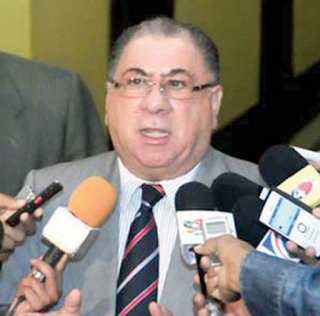Although the crime rate today in the Dominican Republic is lower than the newspapers would have you believe, the people's elected Congress has opted to use a manufactured fear of "muggers on motorcycles" to pass a law which will see the population disarmed in the face of a government some accuse of fraudulent elections.
The large-circulation daily El Nacional reported that the Dominican Senate approved a law giving the Dominican Minister of Police greater powers, including that of regulating the country's civilian armaments.
According to El Nacional, the new law has as its stated objective the gradual disarmament of the Dominican population, planning to give a full monopoly to the military and the police, institutions which have been little reformed since the fall of dictator Rafael Trujillo, and which could easily return to their natural state of repression against the population.
According to the large-circulation daily El Caribe, the Dominican Republic was until this past week's approval of the disarmament law a country that for the most part respected its population's right to armed self-defense, especially given the country's long history of suffering oppression at the hands of tyrants, foreign and domestic. That time is over, however, with El Caribe writing that individuals caught with unregistered guns -- persons who were once forced to pay fines, or present themselves in court periodically -- will now face prison time.
 |
| New Arab strongman of the Caribbean. Listin |
With the passage of the latest disarmament law, individuals caught with unregistered guns could face upwards of 5 years in prison; this in a legal system which up until just recently only meted out maximum sentences of 20 years, even for murder.
Jose Ramon Fadul, the Minister of Police now empowered with the task of disarming the Dominican population, told the digital portal Noticias Sin that he has 207,000 weapons in his sight, with every single legal gun-owner now a target of the state.
Dominican legal gun owners are currently living in fear, afraid that only criminals will be armed, since a significant number of violent crimes on the island are committed by persons affiliated with the police or the military, institutions where individuals earn an "onion salary" that amounts to a meager couple of hundred dollars a month.
The current president of the Dominican Republic, Danilo Medina, altered the Constitution after promising not to run for re-election, and now he can rest assured that he will once again be able to re-write the people's laws to suit his own desires without the fear of tyrannicide at the hands of the population.
Since the manufactured crime wave used to justify this disarmament of the population stems from a fear of armed muggers, many of whom are soldiers or police officers, reigning in the authorities themselves will lower the crime rate, but it will be attributed to the disarmament law.
Generals opposed to this measure have been forced to retire, with the disarmament law taking them out at the same time, in order to send a message to the lower ranks. The removal of the generals will also centralize power on the Dominican president's loyal minister of police, Mr. Fadul.
Some critics argue that it was the very president's plan to pay his armed forces a meager salary, sparking this wave of armed robberies in order to justify the disarmament of the population, thus guaranteeing that the Dominican Liberation Party will see another two decades of absolute rule over Latin America's fastest-growing economy; and it may just very well be the case.
